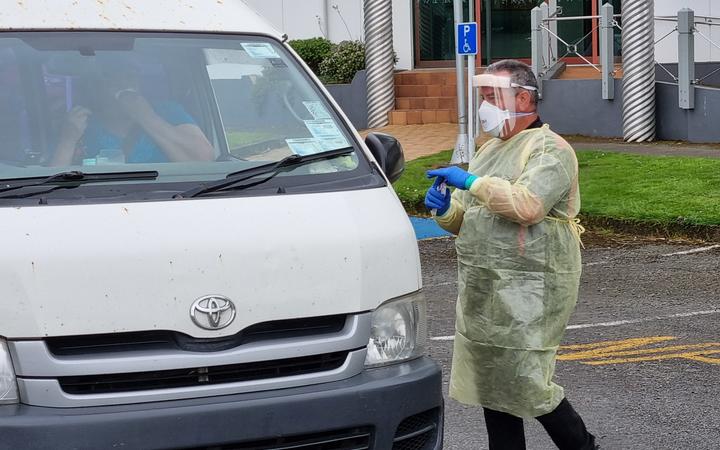Eleven new Covid-19 cases have been found in the rural Rangitīkei area of Marton, bringing the number of active cases in the Marton outbreak to 20.

Covid-19 testing (file image). Photo: RNZ / Jimmy Ellingham
The 11 new cases are linked to five discovered over the weekend, and four further cases on Tuesday.
Public health units have been testing contacts in the Marton Covid-19 cluster, including at a workplace and a school.
The district health board is refusing to identify the sites and no locations of interest have been identified.
The Rangitīkei township has a population of about 5200.
A further active case is isolating in Whanganui, with an earlier Whanganui case now recovered. The total number of active cases in the Whanganui District Health Board area is 21.
The Whanganui DHB said the Marton cases were all connected and most were household or close contacts.
“Public Health is dealing with the task of testing all who have a connection to the active cases. This is a very time-consuming task and involves a workplace, tamariki and a school,” the DHB said in a social media statement.
“Public interest does not outweigh the right to privacy that these places and people need, and are guaranteed by the Health Privacy Act, while they are taken through the steps of testing, self-isolating and managing their new illness.
“All who may be connected with these cases have been contacted and are in the process of being tested. More information will be released in the coming days.
“The active cases have teams in place to help them through this challenging time.”
The DHB said that with the change to phase two of the Omicron outbreak, locations of interest would no longer be reported.
However, new locations were still being added to the Ministry of Health locations of interest web page this morning.
Vaccination numbers in the DHB region hit the 90 percent milestone for double vaccination on Monday, with Māori at 83 percent and Pasifika at 87.
Only 30 percent of children in the region aged 5 to 11 have had their first vaccination – the second lowest rate in the country.
Among those, only 18 percent of tamariki Māori have been vaccinated, and of Pasifika children, only 19 percent – by far the lowest rate in the country.

Local Democracy Reporting is Public Interest Journalism funded through NZ On Air